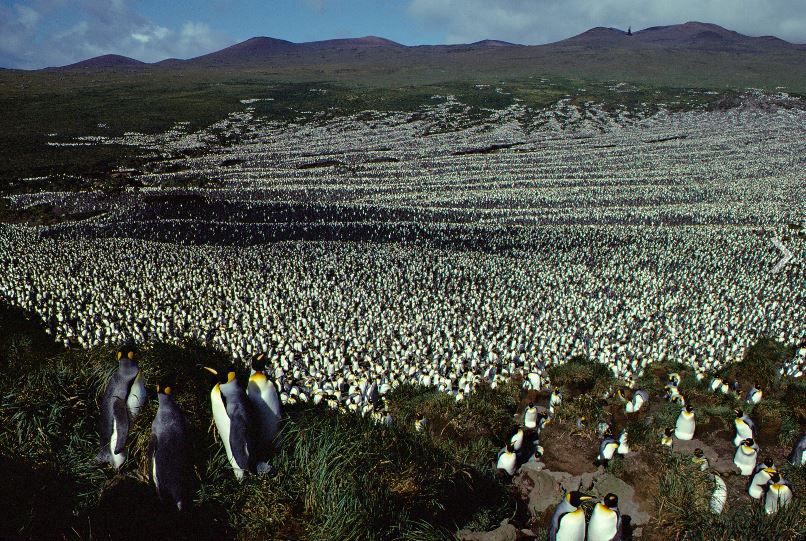But is it so? Known since the 1960s, the colony of king penguins (Aptenodytes patagonicus) on Île aux Cochons, in the southern Indian Ocean, has the distinction of being the world’s biggest colony of king penguins and second biggest colony of all penguins but due to its isolation and inaccessibility, no new estimates of its size were made for decades. It was last visited by a crew of scientists in 1982. So it may be that the last estimate was exceptionally high. Or this one is exceptionally low. Or it may be average.
To make their claim, researchers from the Chizé Centre for Biological Studies (CNRS / University of La Rochelle) instead used satellite images. When first discovered, estimates were that the colony included 500,000 breeding pairs and consisted of over two million penguins. To calculate the area occupied by the colony at different times between 1960 and the present, the researchers studied changes in its contours over the years. They believe that the colony has shrunk, yielding its territory to encroaching vegetation. Photographs taken from a helicopter during the Antarctic Circumpolar Expedition added to beliefs that the colony’s penguin population has plummeted.

Île aux Cochons king penguin colony in 1982. Credit: Henry Weimerskirch
They say that the decline began in the late 1990s caused by El Niño, which was not a climate change event but skewed early results of measurements dramatically. affected the foraging capacities of another colony 100 km from Île aux Cochons, causing it to dwindle. Obviously that may be responsible for the fate of the Île aux Cochons colony. Its size may also subject it to density-dependent effects. That is, the larger the population, the fiercer the competition between individuals, slowing the growth of all members of the group. The repercussions of lack of food are thus amplified and can trigger an unprecedented rapid and drastic drop in numbers, especially following a climatic event like the one in the 1990s.
Disease is the most compelling hypothesis. Avian cholera is currently ravaging populations of seabirds on other islands in the Indian Ocean, like the albatross of Île Amsterdam and the penguins of Marion Island.
Citation: Weimerskirch H, Le Bouard F, Ryan PG, Bost CA. 2018 Jul 25. Massive decline of one of the world’s largest penguin colonies: the king penguin colony at Île aux Cochons, Crozet. Antarct. Sci. 30(4):236–242. doi:10.1017/S0954102018002206.





Comments